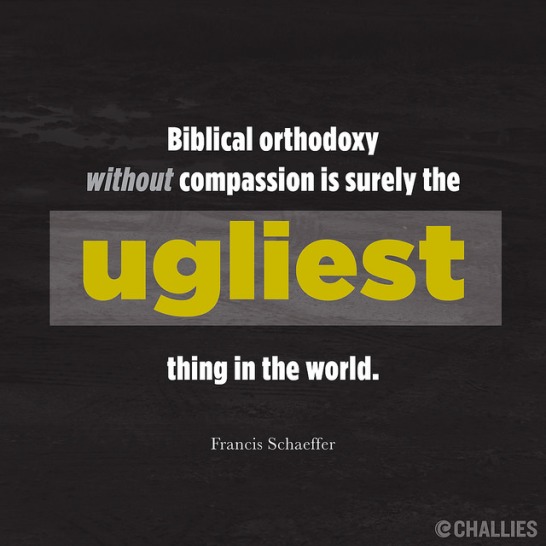START WITH SCRIPTURE:
Exodus 20:1-17
CLICK HERE TO READ SCRIPTURE ON BIBLEGATEWAY.COM
OBSERVE:
The Ten Commandments are regarded in Western culture as the foundation of Judeo-Christian law and morality. These ten laws aren’t exhaustive. Altogether in the Torah (which is the first five books of the Bible), especially from Exodus to Deuteronomy, there are over 600 laws, commandments and precepts.
These ten laws are essentially relational, prescribing the duties of humans toward God and one another.
God initially declares his claim on Israel. He is Yahweh their God, who has delivered Israel from slavery in Egypt. The covenant between Yahweh and his people is predicated on this history. Before he was their lawgiver he was their Savior and Liberator.
The first four commandments may be described as “vertical.” What I mean is that they address the human relationship with God. First, God commands their absolute allegiance to himself. No other gods. The second is an amplification of the first — no worship of images. The faith of Israel requires strict monotheism and no handmade objects of devotion. God is the maker of all creation. It is not creation that is to be worshipped and adored, but God alone.
God is described in very personal terms here — he is jealous of his worship, and punitive toward those who are disloyal; and he is loving toward those who love him.
Third, they are not to misuse the name of the Lord. This isn’t simply oaths or cursing, but the attempt to manipulate the holy name of God for personal gain, or even purposes of magical incantation. A name in the Hebrew mind contained in it the very nature and identity of the person. So, to misuse the name of the Lord is to affront the very nature of God himself.
Fourth, the Sabbath is to be a day of rest for the people and their creatures, commemorating the culmination of creation on the seventh day when God rests from his acts of creating. Just as God’s name is holy, so is this day to be holy — set apart.
In other words, there are to be boundaries between what is holy and what is not holy.
- One God
- No rivals
- A holy name
- A holy day
These commands are to remind them of the God who has delivered them.
The last six commandments govern human relationships. These are the “horizontal” commandments. But the fifth commandment, like the first, is a demand for reverence and loyalty — in this case, honoring one’s parents. As with the second commandment, which promises love to a thousand generations of those who love God, the fifth commandment also promises blessings — in this case long life.
It would seem that every “civilized” society holds these five commandments in common:
- Respect for parents
- Respect for life
- Respect for marriage
- Respect for property
- Respect for truth telling
The final commandment, though, crosses the line from mere external obedience into internal motivation. Covetousness is that sense of greed or craving or envy that begins to penetrate and to corrupt the heart. It might even be said that the sins of murder, adultery, theft, and even deception begin with covetousness.
Needless to say, these commandments are a cornerstone for a Biblically righteous and harmonious life.
APPLY:
The Christian attitude toward the law is a little complicated. The law performs the very vital function of revealing God’s will and his holy nature. But as Paul illustrates in his Epistles, pure obedience to the law is impossible.
In a sense the unattainable nature of the law is built into it. The tenth commandment — prohibiting covetousness — makes clear that sin is more than mere action. Sin springs from the heart and the will.
Jesus says as much when he says:
You have heard that it was said to the ancient ones, ‘You shall not murder;’ and ‘Whoever murders will be in danger of the judgment.’ But I tell you, that everyone who is angry with his brother without a cause will be in danger of the judgment; and whoever says to his brother, ‘Raca!’ will be in danger of the council; and whoever says, ‘You fool!’ will be in danger of the fire of Gehenna (Matthew 5:21-22).
And again he says:
You have heard that it was said, ‘You shall not commit adultery;’ but I tell you that everyone who gazes at a woman to lust after her has committed adultery with her already in his heart. (Matthew 5:27-28).
None of this suggests that the law is abolished or that it can be ignored (see Matthew 5:17-20). It does remind us that the law is like a mirror that shows us what is wrong with us, and then drives us to Christ our Savior, who satisfies the law on our behalf. Only with the help of the Holy Spirit are we empowered to fulfill the outer and inner aspects of the law. As Romans 8:2-4 says:
For the law of the Spirit of life in Christ Jesus made me free from the law of sin and of death. For what the law couldn’t do, in that it was weak through the flesh, God did, sending his own Son in the likeness of sinful flesh and for sin, he condemned sin in the flesh; that the ordinance of the law might be fulfilled in us, who walk not after the flesh, but after the Spirit.
To paraphrase John Wesley: “what God has done for us, he also does in us.”
Furthermore, the law is summed up by the law of love, in which we are commanded to love God and our neighbor (see Matthew 22:36-39 and Romans 13:8-9). If we love God and our neighbor, it stands to reason we will also fulfill the Ten Commandments — and we will do so through the power of the Holy Spirit.
RESPOND:
The law reminds me of the very holiness of God, and the very personal nature of my relationship with God and with other people. If I love God, I will want to worship him alone, worship no other substitutes, honor his name and set aside a day for worship; and if I love other people, then I will obey all of the “horizontal” commandments as well — from my heart.
As 1 John 5:2-3 says:
By this we know that we love the children of God, when we love God and keep his commandments. For this is the love of God, that we keep his commandments. His commandments are not grievous.
Lord, how I love your law! And yet how I hate it at the same time! I love the guidance and the boundaries that the law provides. And yet I find myself unable, in my own strength, to perfectly keep it. I pray that your Holy Spirit will enable me to keep the perfect law of love, in your strength and not in mine. Amen.
PHOTOS: "The Law Is Like a Mirror" uses this photo: "Do I Know You?" by Tom Waterhouse is licensed under the Creative Commons Attribution-NonCommercial 2.0 Generic License.







